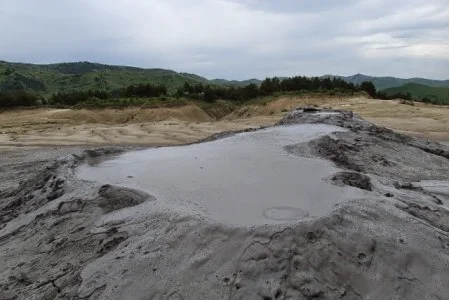Romania discovered a new deposit of crude oil and natural gas, which may be the biggest discovery of its kind in the past 30 years in the south, a Romanian oil company announced Wednesday.
According to OMV Petrom, a subsidiary of the Austrian group OMV, the deposit was discovered at a depth of 2,500 meters in the south of Buzau County.
The estimates obtained from the production tests indicate a potential production per well of 1,200-2,100 boe per day.
The discovery has been made under the onshore exploration partnership signed in 2010 by OMV Petrom and Hunt Oil Company of Romania, the company said, adding that the exploration investment led to this discovery amounts to 5 million euros (6.25 million US dollars).
OMV Petrom is the largest producer of oil and gas in southeastern Europe, with an annual production of crude oil and natural gas of 66 million boe.
Sources: Xinhua- globaltimes.cn
17/12/14
--------------------
OMV Petrom in partnership with Hunt Oil Romania found a new oil and gas field in the south of Buzău County. According to a press release, the field was discovered in Perimeter VIII Urziceni Est by drilling the exploration well Padina Nord 1, at a depth of over 2,500 meters at approx. 7 – 12 km away from mature fields, in production for more than 50 years. Estimates from production tests indicate a potential production per well of 1,200 – 2,100 boe per day from two geological layers. The exploration investments that led to this discovery by OMV Petrom and Hunt Oil amount to EUR 5 million.
“It is potentially the largest discovery in the past 30 years, in the Muntenia region. This year, we have made the largest exploration investments since privatization. It is important to continue exploration activities, as 90 percent of fields we are operating are mature ones and reached their production peak years ago. Currently, we supply about 40 percent of Romania’s oil and gas demand”, said Gabriel Selischi, member of OMV Petrom Executive Board, responsible for Exploration and Production.
In the coming period, the two companies will continue testing operations to determine the production potential of the discovery and will be acquiring seismic data in the region to build on this early success. The discovery was made within the onshore exploration partnership closed in 2010 by OMV Petrom and Hunt Oil. The partnership targets the exploration of two onshore perimeters: I Adjud and VIII Urziceni Est, the operator being Hunt Oil.
http://www.romaniajournal.ro/new-oil-and-gas-field-in-buzau-county-probably-the-largest-in-the-last-30-years-in-muntenia/
17/12/14
According to OMV Petrom, a subsidiary of the Austrian group OMV, the deposit was discovered at a depth of 2,500 meters in the south of Buzau County.
The estimates obtained from the production tests indicate a potential production per well of 1,200-2,100 boe per day.
The discovery has been made under the onshore exploration partnership signed in 2010 by OMV Petrom and Hunt Oil Company of Romania, the company said, adding that the exploration investment led to this discovery amounts to 5 million euros (6.25 million US dollars).
OMV Petrom is the largest producer of oil and gas in southeastern Europe, with an annual production of crude oil and natural gas of 66 million boe.
Sources: Xinhua- globaltimes.cn
17/12/14
--------------------
- New oil and gas field discovered in Buzău County. Probably the largest in the last 30 years in Muntenia ...
OMV Petrom in partnership with Hunt Oil Romania found a new oil and gas field in the south of Buzău County. According to a press release, the field was discovered in Perimeter VIII Urziceni Est by drilling the exploration well Padina Nord 1, at a depth of over 2,500 meters at approx. 7 – 12 km away from mature fields, in production for more than 50 years. Estimates from production tests indicate a potential production per well of 1,200 – 2,100 boe per day from two geological layers. The exploration investments that led to this discovery by OMV Petrom and Hunt Oil amount to EUR 5 million.
“It is potentially the largest discovery in the past 30 years, in the Muntenia region. This year, we have made the largest exploration investments since privatization. It is important to continue exploration activities, as 90 percent of fields we are operating are mature ones and reached their production peak years ago. Currently, we supply about 40 percent of Romania’s oil and gas demand”, said Gabriel Selischi, member of OMV Petrom Executive Board, responsible for Exploration and Production.
In the coming period, the two companies will continue testing operations to determine the production potential of the discovery and will be acquiring seismic data in the region to build on this early success. The discovery was made within the onshore exploration partnership closed in 2010 by OMV Petrom and Hunt Oil. The partnership targets the exploration of two onshore perimeters: I Adjud and VIII Urziceni Est, the operator being Hunt Oil.
http://www.romaniajournal.ro/new-oil-and-gas-field-in-buzau-county-probably-the-largest-in-the-last-30-years-in-muntenia/
17/12/14
















 GR
GR FR
FR DE
DE ES
ES IT
IT RU
RU EU
EU